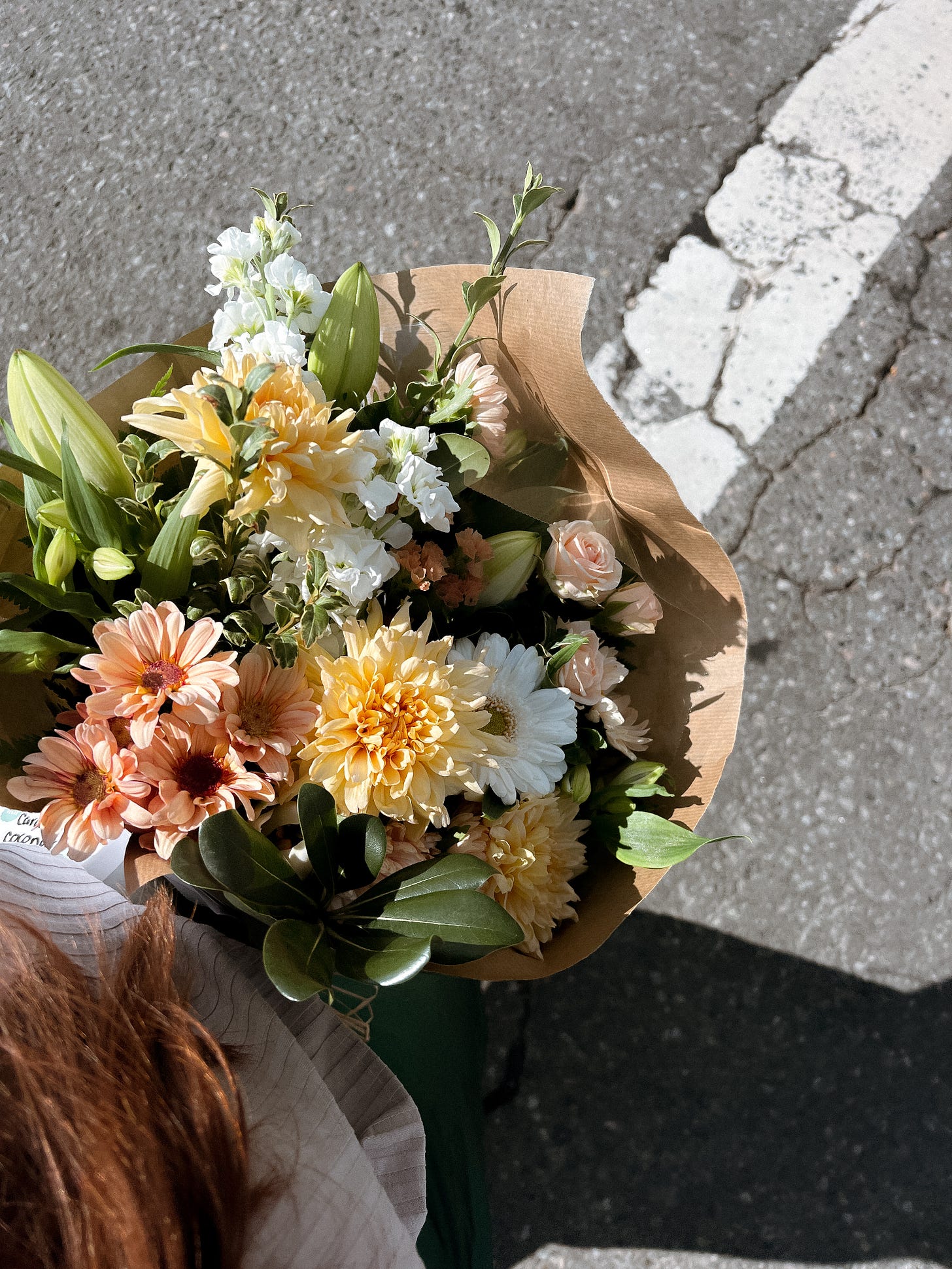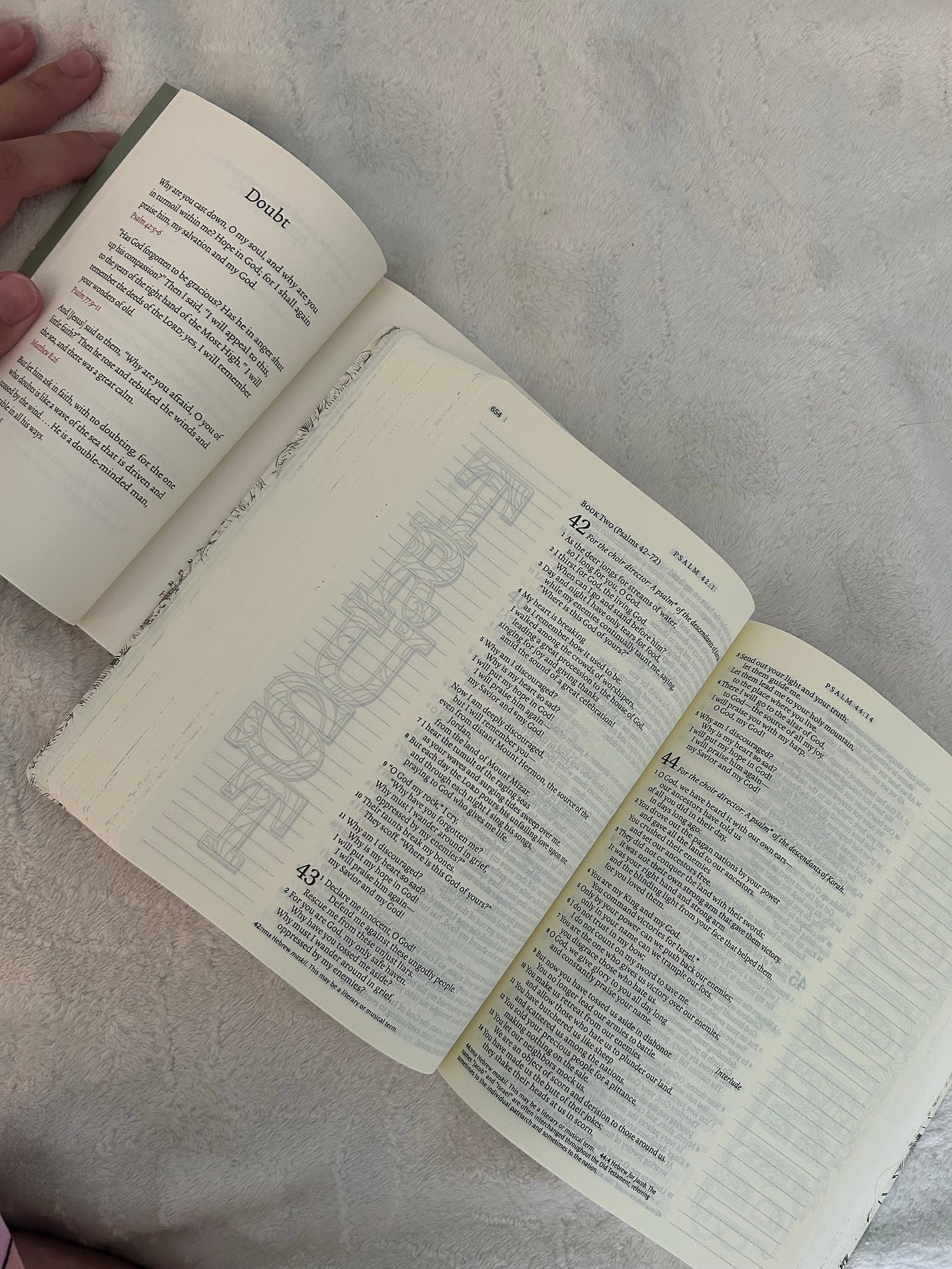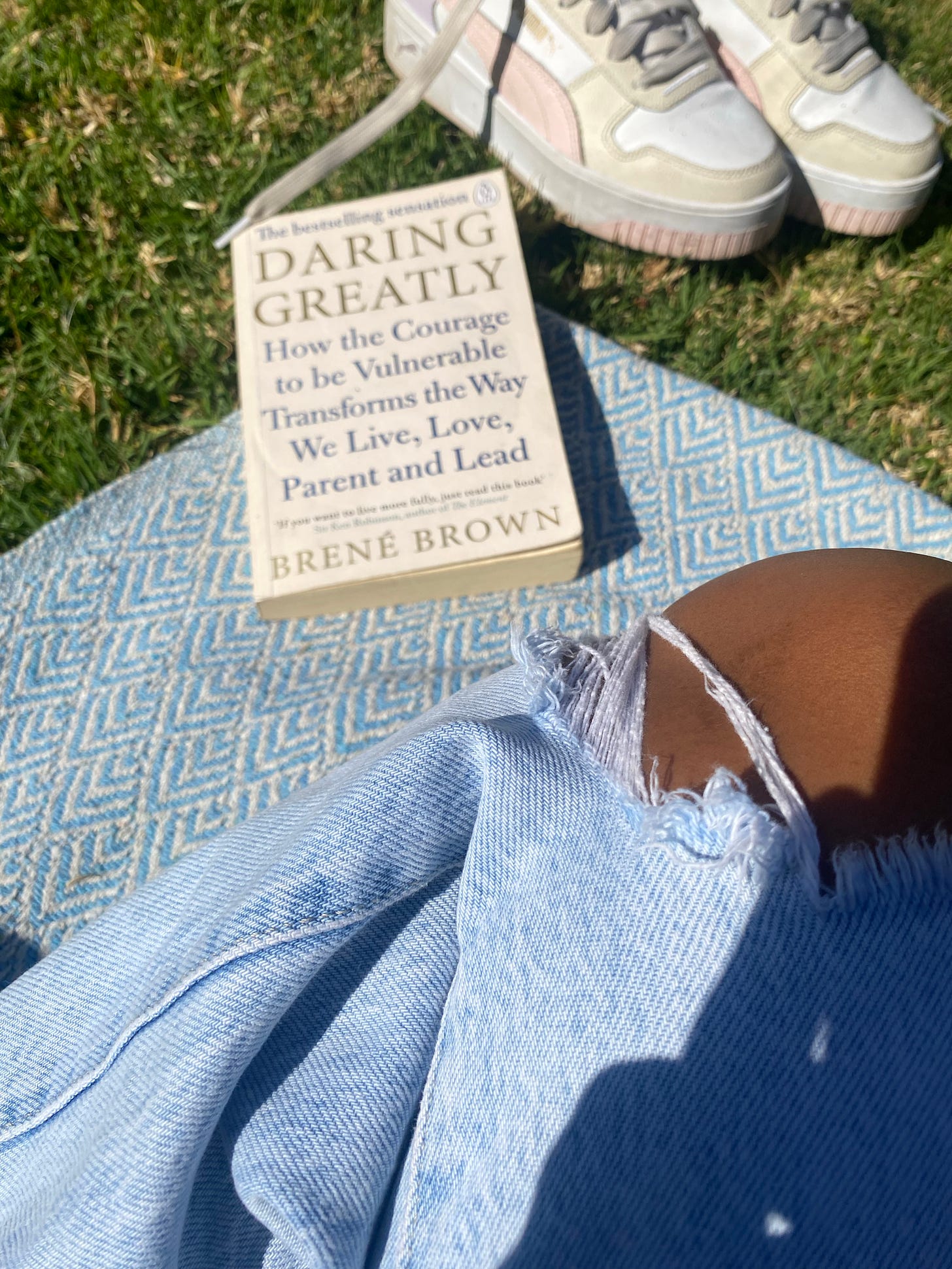“I don’t think you have ever really let anyone see how much it hurts.” She said. I was a little annoyed that I knew she was right.
The conversation had started with me sharing about a hurtful interaction with a friend. Of course, I didn’t tell the friend how hurtful it was. I just brushed it off, rolled my shoulders back, and decided to be strong anyways.
It’s a lifelong habit of mine (and of many of ours) to try to appear strong, to have it all together, to respond with “I’m good!” to the deceptive “how are you?” question.
While I debriefed the interaction with my counselor she helpfully pointed out that the person who shared some words with me that were received as difficult and insensitive didn’t actually realize how hurt I was. Because if she had, and if she was a reasonable person (she is) she wouldn’t have said them. Not to me in that tender moment of the aftermath of my trauma. My counselor and I went on to talk more and more about this idea—the idea of allowing ourselves to be truly, fully seen.
It makes me squirm in my chair a bit even now.
I posted about birth trauma on social media. People knew things got wild. I made TikToks about it. I included bits and pieces of the story in this weekly newsletter. I just assumed people knew. But my counselor confronted me in the kind and somewhat harsh way counselors do and reminded me that no one had actually really seen my pain yet at that point.
The idea of “witnessing” someone’s pain has captured my attention.
As a writer, I often hear a word or phrase and just get stuck on it for a while. This is one for me right now.
In the Bible, “witness” comes up a lot. It’s used both to describe seeing, experiencing, and being able to testify to God’s works. It’s also used to describe a call we all have on our lives—the holy call to “witness” one another’s pain. I wonder if the justice connotations are important here. A witness goes to court to testify. Christians essentially go to court spiritually to say I have seen God in my life and He is real.
Maybe witnessing one another’s story is meant to have this same intensity. Imagine your closest friends standing up on your behalf courtroom style and insisting this pain was real. This joy was real. I am a witness to it.
For me, that feels like a powerful image. But to get to that point we first have to allow those people to witness our pain. We have to be willing to call on them as witnesses.
In Acts 1:8 it says,
“But you will receive power when the Holy Spirit comes on you; and you will be my witnesses.”
I imagine that if God needed witnesses, so do we. It requires vulnerability to allow people into your grief and into your joy. I like Brene Brown’s thoughts on vulnerability:
“Vulnerability is not winning or losing; it's having the courage to show up and be seen.”
Being seen or witnessed is something that takes courage. But I can tell you that I wouldn’t be where I am on my healing journey today without it.
As much as American culture loves to tout individualism and a DIY approach to life it’s far from biblical and truthfully, it just makes me really tired. Faith is communal. Healing is communal.
One of my favorite names for God is “El Roi” or “the God who sees.” He told us we would be his witnesses, he called us to witness one another’s pain, and he set an example by being a witness to one woman’s pain himself. The woman who gave God this name was a single mother, abandoned with her son, who was fully seen by God and gave him this name. She was the only person in scripture who was allowed to give God a name. (I just love that detail.)
The name she chose reflected God’s nature to see us, even in the moments where maybe we don’t even want to be seen.
Henri Nouwen often wrote about the idea of a wounded healer. He wrote,
“Nobody escapes being wounded. We are all wounded people, whether physically, emotionally, mentally, or spiritually. The main question is not 'How can we hide our wounds?' so we don’t have to be embarrassed, but 'How can we put our woundedness in the service of others?' When our wounds cease to be a source of shame, and become a source of healing, we have become wounded healers.”
Our own painful experiences allow us to witness God. When we don’t hide our wounds from other people and we allow ourselves to be seen without shame we can actually embrace the communal healing we were designed for.
It is hard and holy work both to see and to be seen.
I remember one of the first times I told my son’s birth story. I don’t remember what words I chose or what details I included or what I left out. But I remember the person sitting with me. I remember the way she cried with me. I remember her listening without judgement and never expressing a single platitude. She just saw me. She saw my pain. And in that moment, I saw God in her.
What an honor it is to serve a God who sees us and a God who declared “you are my witnesses” (Isaiah 43:10) and to spend a lifetime witnessing him and each other.
Over the past year, I’ve learned a lot about who to share with, how to share, when to share, and I’ve made a lot of mistakes along the way. But I am more certain of one thing than I ever have been before—we cannot heal unless we are seen.








This is really good awareness. Help from others can seem not so helpful at times. Not because they mean to hurt. They haven’t learned to just say the simplest of words “I’m sorry”. Nothing more…. ❤️
Keep teaching others this one simple phrase. ❤️
wow, Molly. i love it here.